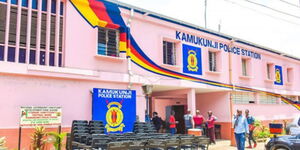More than four decades after the death of Mombasa billionaire, Awadh Saleh Sherman, popularly known as Swaleh Nguru, his relatives were locked in a fierce court battle over the management of the Ksh10 billion fortune he left behind.
From his exploits, it is easier to deduce that the billionaire lived large. What, however, escapes many people is the hard work he put in to rise from a fishmonger to a revered tycoon.
Born in Bondeni, Mombasa, Swaleh was raised in a humble family unit where his father worked as a taxi driver and developed a love for automobiles. He ventured out on his own to set up a bicycle repair shop in Tudor, which later became Swaleh Nguru Garage.
The garage was very popular with historical figures such as Jomo Kenyatta and Tom Mboya visiting the establishment.
Prior to the garage, Swaleh, who is of Yemeni descent, found his footing as a fishmonger selling Kingfish (Nguru in Swahili) which led to his nickname, Nguru.
The tycoon used his influence to amass wealth acquiring parcels of land both in the Coastal City of Mombasa as well as upcountry.
His real estate business started booming in the mid-20th century, a time he is said to have owned a third of Mombasa Island. his properties were mostly found in the Majengo area.
He also founded several companies and succeeded in the business world. He set up Kilindini Warehouses and AGRO Processors where he was the founder and served as chairman and Chief Executive Officer. He also traded in various commodities including grain, tea, coffee and nuts.
Besides Mombasa, Swaleh also ran the largest sisal plantations in Kenya at Taru and was the main exporter of the commodity during its heydays.
The man of significant wealth also owned some of the largest ranches in Kenya. He is also recognized by the Government of Kenya and the United Nations for his philanthropic and conservational efforts around Kenya.
Awadh married Dalila Juma on April 14, 1960. They lived in Kilifi, Mombasa, and led a simple life away from the public eye. Swaleh was an extremely reclusive billionaire, who did not like to be involved in politics. His family is known to be very philanthropic.
A battle for his wealth, which was valued at Ksh10 billion in 2012, however, exploded after two brothers disagreed on how to run the estate.
The youngest brother sued the elder one accusing him of withholding the tycoon's will and meddling with the property without involving the other family members. At the time, the tycoon's widow, three sons and two daughters, were demanding a share of the property.
In 2020, the fight worsened with claims that the elder brother was still meddling with the property. A verdict is yet to be made public.
Swaleh passed away in the mid-1970s.












